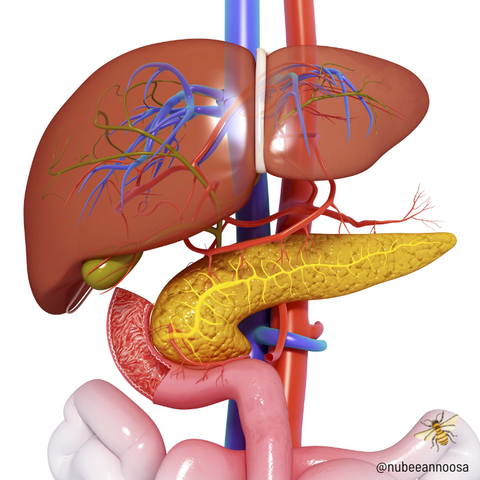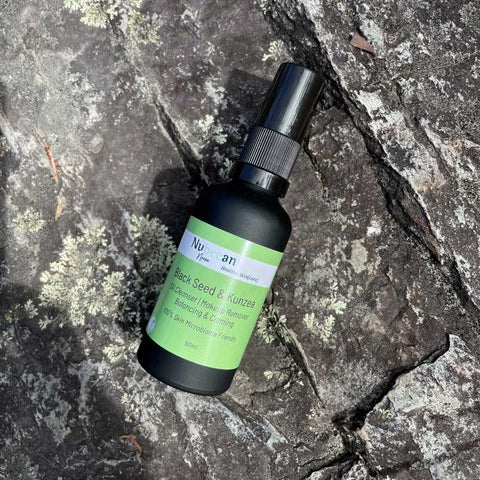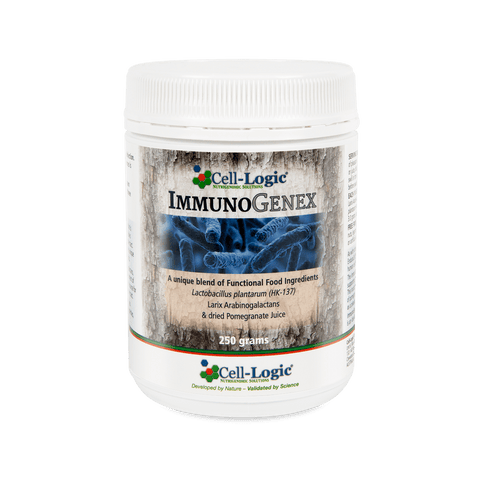Healthy Skin and Digestion: Banish Bloating & Blemishes with Bitter Foods
Ever wondered why your skin breaks out or rashes pop up whenever you're feeling bloated? Your skin and digestion are intrinsically linked. Both bloating and skin breakouts are often signs of underlying issues with digestion.
Your body uses your skin to alert you of deeper imbalances and problems in your gut. You can count on your skin to let you know when your immune system and digestive support organs like pancreas, liver and gallbladder are unhappy.
If you're experiencing skin conditions such as
- acne
- rosacea
- eczema
- dry skin
- psoriasis
AND you're also on first name basis with bloating, gas, constipation or diarrhea this article will help you understand how to support healthier skin and digestion with simple home remedies using food, herbs and nutrients.

Resting your gut
Stress and indulgent eating both take their toll on your digestion. They're both common triggers for bloating and digestive discomfort. If you ignore the warnings from your gut, skin breakouts are often next.
Eating large meals regularly, snacking late at night or eating overly rich foods can all lead to sluggish digestion as your gut struggles to keep up with the digestive enzymes required to break down all that food. It's not healthy to eat like it's a festival or holiday all the time.
Stress can also result in a reduction in essential digestive enzymes and lead to bloating and poor digestion (more on that later). Stress combined with overeating will nearly always cause bloating, burping, gas and feeling uncomfortably full. Some people are back to normal in a day or two, for others with more sensitive digestion it can take a few weeks to recover.
Sometimes all it takes is replacing your evening meal with a simple and easy to digest broth or miso soup for a night or two in order to rest your gut (and liver). Try doing this 3 nights a week for a month or two to see how your skin and digestion respond.
Be strict about no snacking after dinner. Drink only water or herbal teas in the evening after eating. Go to bed early if you feel hungry. You'll wake feeling more energised with a flatter, happier stomach the next morning. Your skin will also thank you.
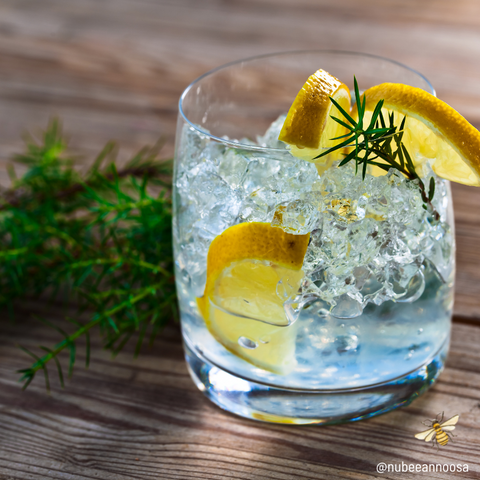
Bitter tonics
Bitter foods and drinks help to stimulate stomach acid, digestive enzymes and bile flow.
Herbs and plants with bitter properties have been used for thousands of years to improve digestion, relieve heartburn, soothe gas & bloating.
Bitters encourage and stimulate digestion enzymes, bile flow and stomach acid secretion - all essential to good digestion (and healthy skin).
Other proven benefits of bitter foods and herbs include:
- Curb sugar cravings
- Increase absorption of fat soluble vitamins A, D, E, K
- Help maintain healthy blood sugar levels
- Balance appetite
- Regulate bowel movements
- Support liver function and healthy skin

How do bitters work to improve digestion?
Bitters help to improve digestion in two main ways.
Firstly, when bitter taste receptors are stimulated, your mouth starts to produce and release more saliva. This helps to prepare your digestion for a mouth watering meal! Saliva also contains enzymes that mix with the food you chew and starts the process of breaking down starches (carbs) and fats.
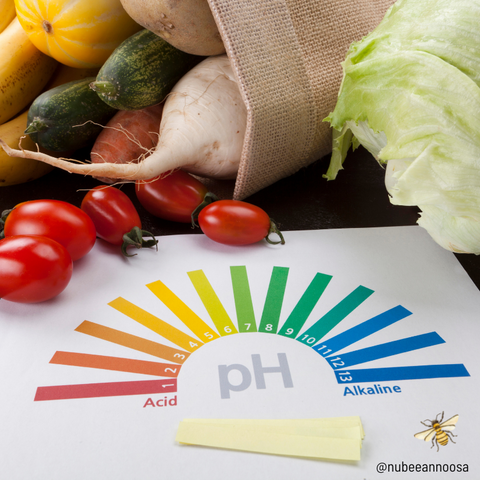
Stomach acid
Stomach acid is the first step your digestive system system uses for breaking down proteins. It also aids in mineral absorption and helps destroy unwanted bacteria & parasites found in food.
Signs of LOW STOMACH ACID include:
- Bloating & gas
- Feeling overly full (like you've eaten a full Christmas dinner after every meal)
- Reflux & heartburn
- Constipation or diarrhea
- Difficulty digesting meat or high protein foods
- Long term can lead to mineral deficiencies resulting in hair loss, brittle nails, mood problems and fatigue.
Skin symptoms associated with low stomach acid include:
- rosacea
- acne
- psoriasis
- hives
Bile: Liver and Gallbladder
Bile is produced in your liver and stored in your gallbladder. Your gallbladder looks like a green pea attached underneath your liver. It squirts bile into your small intestine when food leaves your stomach. Bile helps to neutralise stomach acid and acts like dishwashing detergent to emulsify fats and fat soluble vitamins like A, D, E, K and essential fatty acids, so you can absorb them.
Signs of SLUGGISH BILE FLOW include:
- Feeling bloated and/or nauseous after eating foods high in fat/oil
- Bloating in the lower abdomen that starts up a few hours after eating.
- Fish oil capsules repeat on you (makes your burps taste and smell like fish oil).
- Bitter or metallic taste in your mouth, especially in the morning and after food.
- Poop that is greasy, sticky and stinky, difficult to flush
Skin symptoms associated with poor bile flow include:
- unexplained itching skin
- dry & flaky skin
- dry hair
- reddened skin (especially palms)
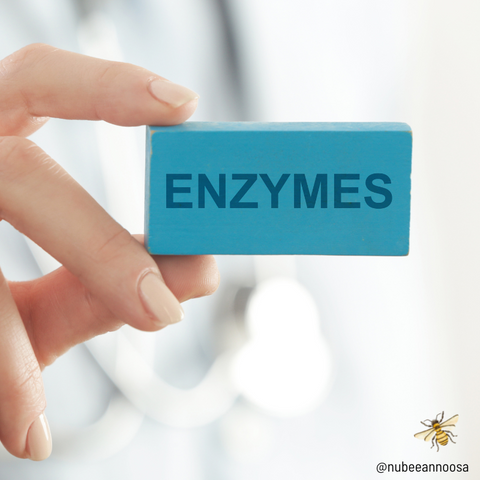
Digestive enzymes
Digestive Enzymes are found in your small intestine and break down carbohydrates, fats and proteins ready to be absorbed. They are produced and released from cells in the wall of your small intestine and also by your pancreas.
Signs of low DIGESTIVE ENZYMES include:
- Indigestion, bloating or feeling overly full, lasting for 2-3 hours after eating.
- Poop that looks greasy or has visible mucous in it.
- Fibre makes you bloated
- Lots of gas that can be very smelly
- Lots of food sensitivities
- Brain fog and fatigue, headaches & mood swings
- Unexplained joint and muscle pain
Skin symptoms associated with low digestive enzymes include:
- skin rashes
- eczema
- acne
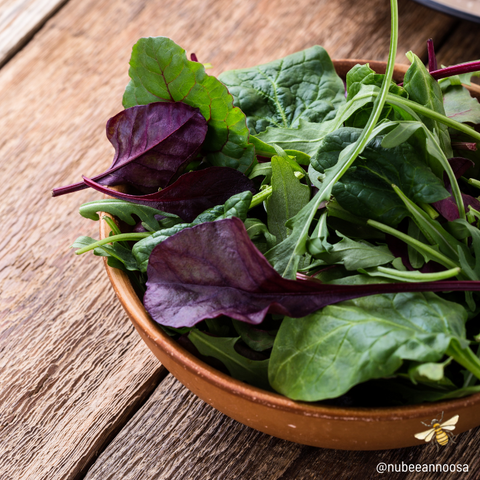
Bitter foods and herbs to the rescue
Supplements are available that support stomach acid, liver/gallbladder and digestive enzymes, however, it's always best to start with food first. Supporting healthy skin and digestion should always start in your kitchen.
Most people don't eat enough bitter foods as part of their daily diet. The bitter taste receptors in your tongue are the most sensitive out of all the taste receptors, and for good reason. In nature, sweet foods are generally safe to eat whereas most poisonous plants are very bitter. So this sensitivity to bitter tastes is part of an inbuilt survival instinct. That doesn't mean that all bitter foods are bad for you! In fact, quite the opposite. Many of the most powerful medicinal herbs are also extremely bitter. Cultivating a taste for bitter foods, herbs and drinks is a wonderful and easy way to help support healthy skin and digestion.
In our modern life where both high stress and rich, processed foods conspire against good digestion, acquiring a taste for bitter foods and drinks is well worth the small amount of effort it takes.
Some examples of bitter foods and drinks include:
- Lemon juice and rind
- Bitter greens - rocket, radicchio, endive, mustard greens, arugula and dandelion greens
- Chamomile tea (great if your tummy is super sensitive to stress)
- Dandelion root tea
- Extra virgin olive oil
- Beetroot (freshly grated beetroot with lemon juice and EV olive oil works a treat for stimulating digestion AND promoting detoxification)
- Ginger
- Turmeric
- Olives
- Black coffee
- Dark chocolate 😁
- Dill
- Sesame seeds (tahini)
- Tonic water (gin and tonic is a traditional aperitif to help stimulate digestion before a meal)
- Bitter melon/gourd
How to use bitter foods and drinks
For healthy skin and digestion, add bitter foods and drinks to your daily diet.
If you're currently experiencing skin and digestion problems, you'll need to use them a little more intensively to start with. Eat or drink your bitters 10-15 minutes before meals. You can have more after you've finished eating if you feel bloated or overly full.
Some ideas on how to use bitter foods:
- A small green salad made from rocket and dandelion greens with extra virgin olive oil and lemon juice + salt and pepper to taste.
- Grated beetroot with EV olive oil and lemon juice.
- A tea made from dill seeds and chamomile.
- Lemon juice in 1/4 glass of water.
- A tea made from freshly grated ginger.
- Golden latte made with turmeric, ginger and black pepper.
- Dandelion root tea.
- Chamomile tea with lemon juice.
- Adding bitter melon to curries and stir-fries.
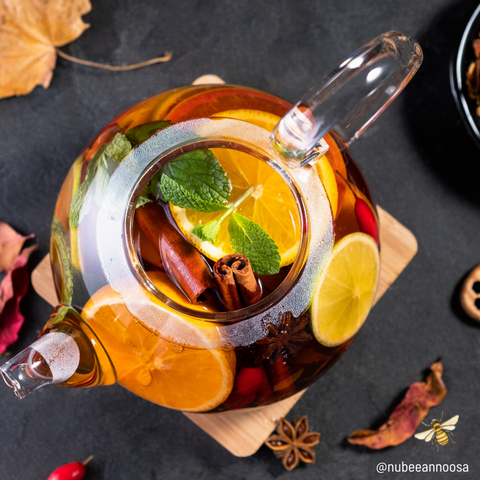 Bitter tonic recipe for healthy skin and digestion
Bitter tonic recipe for healthy skin and digestion
You can buy bitter tonics but it's simple and easy to make your own at home. All you need is:
- 2 tablespoons of chopped dandelion root (or two teabags of dandelion tea)
- 1 tablespoon cardamom seeds
- 1 tablespoon coriander seeds
- 1 teaspoon caraway seeds
- 1 tablespoon of freshly grated ginger
- 1/2 cinnamon quill broken into pieces
- 3 half inch strips of orange peel (white pith completely removed)
- 2 half inch grapefruit peel strips (white pith completely removed)
- 5 cups of filtered water
Combine all ingredients in a small saucepan. Cover and bring to a boil. Once boiling, remove from heat and allow to steep and infuse for 20-30 minutes before straining. Drink 1/4 to 1 cup before meals. Will keep in the fridge for up to 5 days.
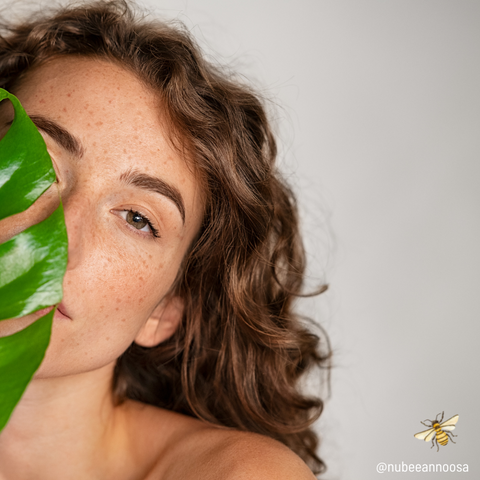
Developing a taste and appreciation for bitter foods and drinks and including them in your diet on a regular basis is a simple, easy and low-cost way to help support healthier skin and digestion.
You might also be interested in
BlackSeed & Kunzea Cleansing Oil
A beautiful, simple and safe cleanser for out of balance skin. Nutritionist/naturopath formulated for acne, hormonal acne, rosacea, psoriasis. Safe for all skin types. An oil cleanser that gently but effectively removes all make-up & zinc-based sunscreens while balancing your skin's microbiome, moisturising and supporting your skin's protective barrier.
ImmunoGenex
A functional food product. Prebiotic + Probiotic + Pomegranate. Prebiotic from larch tree bark. Heat killed probiotic found naturally in kefir, saurkraut and kim chi. Pomegranate is rich in natural antioxidants and also has beneficial effects upon the health of the gut microbiome.
 Skip to content
Skip to content

